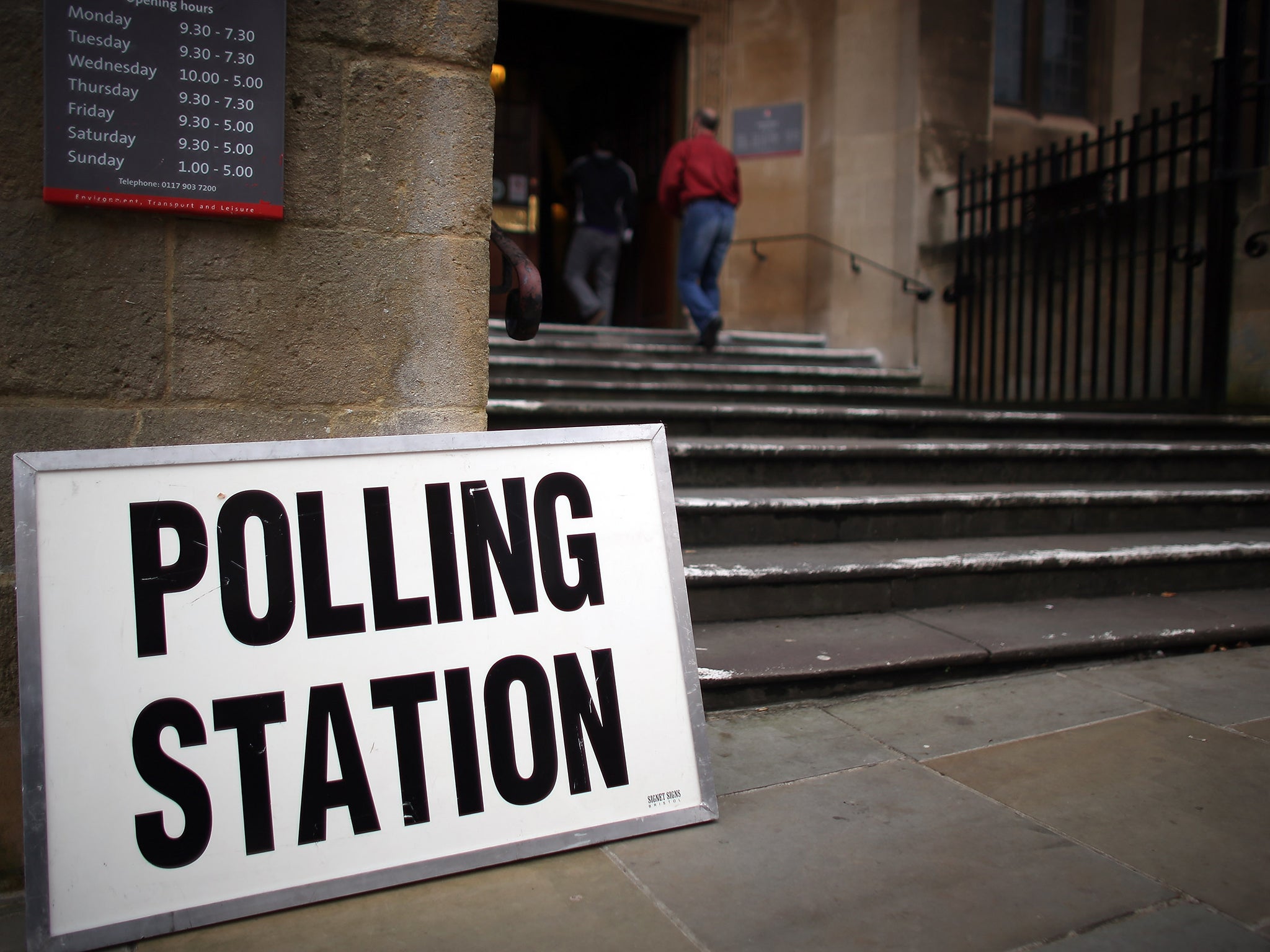Pollsters know that this election will be the most unpredictable to date
It’s an irregular election because of the unprecedented link to the terms of a referendum outcome that split the country in two – and that cut across party lines, adding a new dimension to the political spectrum


Your support helps us to tell the story
In my reporting on women's reproductive rights, I've witnessed the critical role that independent journalism plays in protecting freedoms and informing the public.
Your support allows us to keep these vital issues in the spotlight. Without your help, we wouldn't be able to fight for truth and justice.
Every contribution ensures that we can continue to report on the stories that impact lives

Kelly Rissman
US News Reporter
From where we are now, it seems pretty certain that the polls will say that Theresa May will win the snap general election. However, most people are aware of the “failure of the polls” because they came down on the wrong side of near 50/50 races, missing Brexit and Trump.
In fact, neither of these were complete polling disasters. Many EU referendum polls – including ours – pointed to a very decent chance of a Leave win: our final headline was “too close to call”.
Polls in the US, including ours, generally predicted Trump would lose the popular vote, and he did – they just missed narrow victories in the key states that swung it.
And around the world – from the Netherlands to Australia to Peru – the record of the polls in recent national elections has been very strong. Polling is not as useless as some would have you believe.
But that’s not to say the announcement today wasn’t greeted with as much terror as excitement by pollsters.
The biggest problem in polling this election is the unpredictability of public behaviour in what is essentially an unprecedented event.
Although there have been snap general elections before, rarely, if ever, in modern times have they come as entirely unexpectedly as this one: unexpected for the pollsters, unexpected for nearly all the politicians who will take part, but, above all, unexpected for the public.
At this stage, we can only guess what the public’s reaction will be. If they feel the election is unnecessary – the third national poll in two years, or the fifth for the poor Northern Irish – will they react against it?
Will that reaction be strengthened by the Fixed-terms Parliaments Act, the knowledge that in theory prime ministers are not meant to be able to do this anymore – and that this PM specifically said she wouldn’t?
Predicting who will actually turn out to vote is the bane of a pollster’s life – people say one thing, but do another – and what many will see as endless, pointless political events makes voter fatigue incredibly unpredictable.
No PM since Anthony Eden has called a snap election during his or her honeymoon, and while Theresa May is riding high, history shows that can change quickly. In 2007, the polls turned very suddenly against Gordon Brown, almost as soon as everybody started talking about the likelihood that he would call an election.
The context now is so different that it’s extremely difficult to see this pattern being repeated. Jeremy Corbyn has been complaining about the lack of exposure for him and his policies: we’ll now find out how the public react when they see more.
But most of all it’s an unpredictable election because of the unprecedented link to the terms of a referendum outcome that split the country in two – and that cuts across party lines, adding a new dimension to the political spectrum.
The Lib Dems are openly delighted for good reason – their support is among the most aligned to the party’s views of Brexit, and they have a clear hope of attracting more with similar views. Labour has the biggest problem – but even the Conservatives have a relatively broad Brexit church that they need to appeal to.
One final point: the recent polling misses, though overstated, are actually a very healthy thing for polling and political discussion. Nothing in politics is as certain as my opening paragraph suggests, particularly now. Polls should be treated with respect but caution, and you’ll see a lot more from pollsters that emphasise margins of error and the need for realistic expectations of accuracy. In such unpredictable times, that’s a good thing.
Bobby Duffy is managing director of the social research institute at Ipsos Mori
Join our commenting forum
Join thought-provoking conversations, follow other Independent readers and see their replies
Comments